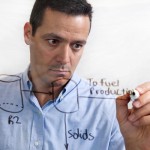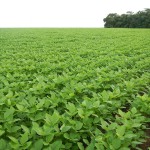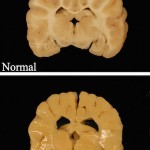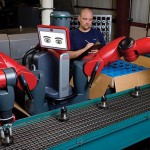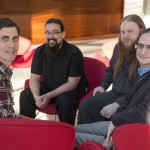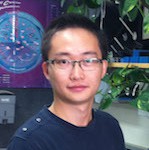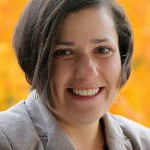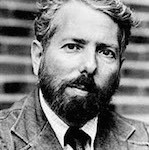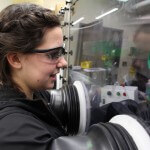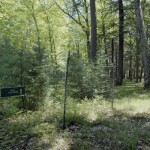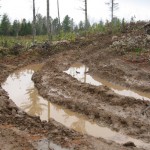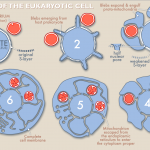Tag Research
Yin retirement closes UW–Madison sound localization lab
After nearly 40 years of distinguished teaching and research at the University of Wisconsin–Madison, neuroscience professor Tom Yin has opted to retire, a decision he made more than a year ago when his National Institutes of Health (NIH) grant was up for renewal. Read More
‘Kindness curriculum’ boosts school success in preschoolers
Watch Richard Davidson discuss this project at the 2015 World Economic Forum Annual Meeting in Davos, Switzerland. Over the course of 12 weeks, twice… Read More
Calculating the future of solar-fuel refineries
A team of University of Wisconsin–Madison engineers has developed a new tool to help plot the future of solar fuels. In a paper recently published in the journal Energy & Environmental Science, a team led by chemical and biological engineering Professors Christos Maravelias and George Huber outlined a tool to help engineers better gauge the overall yield, efficiency and costs associated with scaling solar-fuel production processes up into large-scale refineries. Read More
Study shows Brazil’s Soy Moratorium still needed to preserve Amazon
Today, fewer chicken nuggets can trace their roots to cleared Amazon rain forest. Read More
Rare neurological disease shines light on health of essential nerve cells
Ian Duncan is a Scotsman with the iron discipline and stamina of a competitive marathoner, triathlete and cross-country skier. As a neuroscientist at the School of Veterinary Medicine at the University of Wisconsin–Madison, he's applied his tenacity to a rare genetic disorder. Read More
Doing it for the team: Business study tests motivational techniques
Noah Lim, an associate marketing professor at the University of Wisconsin–Madison’s Wisconsin School of Business, is shedding light on sales incentives that could help managers devise incentive programs with better returns on investment. Read More
UW computer scientists enhance robotic manufacturing
Some industrial robots are hulking, highly specialized pieces of machinery that are cordoned off by cages from human factory workers. Read More
New research project funded by Department of Defense will enable faster, better coding
Pliny, a new research project for writing more error-free, secure code, is being funded by a four-year, $11 million grant recently announced by the Defense Advanced Research Projects Agency (DARPA), part of the U.S. Department of Defense. UW–Madison computer scientists will collaborate with their counterparts at Rice University in Houston (which will lead the project), the University of Texas at Austin, and the company GrammaTech. Read More
Humanity has exceeded 4 of 9 ‘planetary boundaries,’ according to researchers
An international team of researchers says climate change, the loss of biosphere integrity, land-system change, and altered biogeochemical cycles like phosphorus and nitrogen runoff have all passed beyond levels that put humanity in a “safe operating space.” Civilization has crossed four of nine so-called planetary boundaries as the result of human activity, according to a report published today in Science by the 18-member research team. Among them is Steve Carpenter, director of the University of Wisconsin–Madison Center for Limnology and the only U.S.-based researcher on the study. Read More
UW-Madison scientists find how many cancers may evade treatment
Xiaojun Tan, a graduate student in Richard A. Anderson’s lab at the University of Wisconsin–Madison, made an unexpected observation while studying the locations inside cells where the epidermal growth factor receptor, EGFR, can be found. His subsequent investigation revealed how cancer was evading treatment drugs: by sneaking through the cellular back door. Read More
Chemical dial controls attraction between water-repelling molecules
Abbott, Gellman and a group of University of Wisconsin–Madison researchers have provided new insights on hydrophobic interactions within complex systems. In a study published today in the journal Nature, the researchers show how the nearby presence of polar (water-attracted, or hydrophilic) substances can change the way the nonpolar hydrophobic groups want to stick to each other. Read More
Carbon nanotube finding could lead to flexible electronics with longer battery life
University of Wisconsin–Madison materials engineers have made a significant leap toward creating higher-performance electronics with improved battery life — and the ability to flex and stretch. Led by materials science Associate Professor Michael Arnold and Professor Padma Gopalan, the team has reported the highest-performing carbon nanotube transistors ever demonstrated. In addition to paving the way for improved consumer electronics, this technology could also have specific uses in industrial and military applications. Read More
Infamous study of humanity’s ‘dark side’ may actually show how to keep it at bay
In 1961, with memories of Holocaust atrocities and the prosecution of Nazi officials at Nuremburg still fresh, psychologist Stanley Milgram undertook a series of now infamous experiments on obedience and reprehensible behavior. Read More
Deer account for almost half of long-term forest change, study finds
A study released this week has linked at least 40 percent of species changes in the forests of northern Wisconsin and Michigan over the past 60 years to the eating habits of white-tailed deer. Read More
Muddy forests, shorter winters present challenges for loggers
Stable, frozen ground has long been recognized a logger’s friend, capable of supporting equipment and trucks in marshy or soggy forests. Now, a comprehensive look at weather from 1948 onward shows that the logger’s friend is melting. The study, published in the current issue of the Journal of Environmental Management, finds that the period of frozen ground has declined by an average of two or three weeks since 1948. Read More
New theory suggests alternate path led to rise of the eukaryotic cell
As a fundamental unit of life, the cell is central to all of biology. Better understanding how complex cells evolved and work promises new revelations in areas as diverse as cancer research and developing new crop plants. Read More


